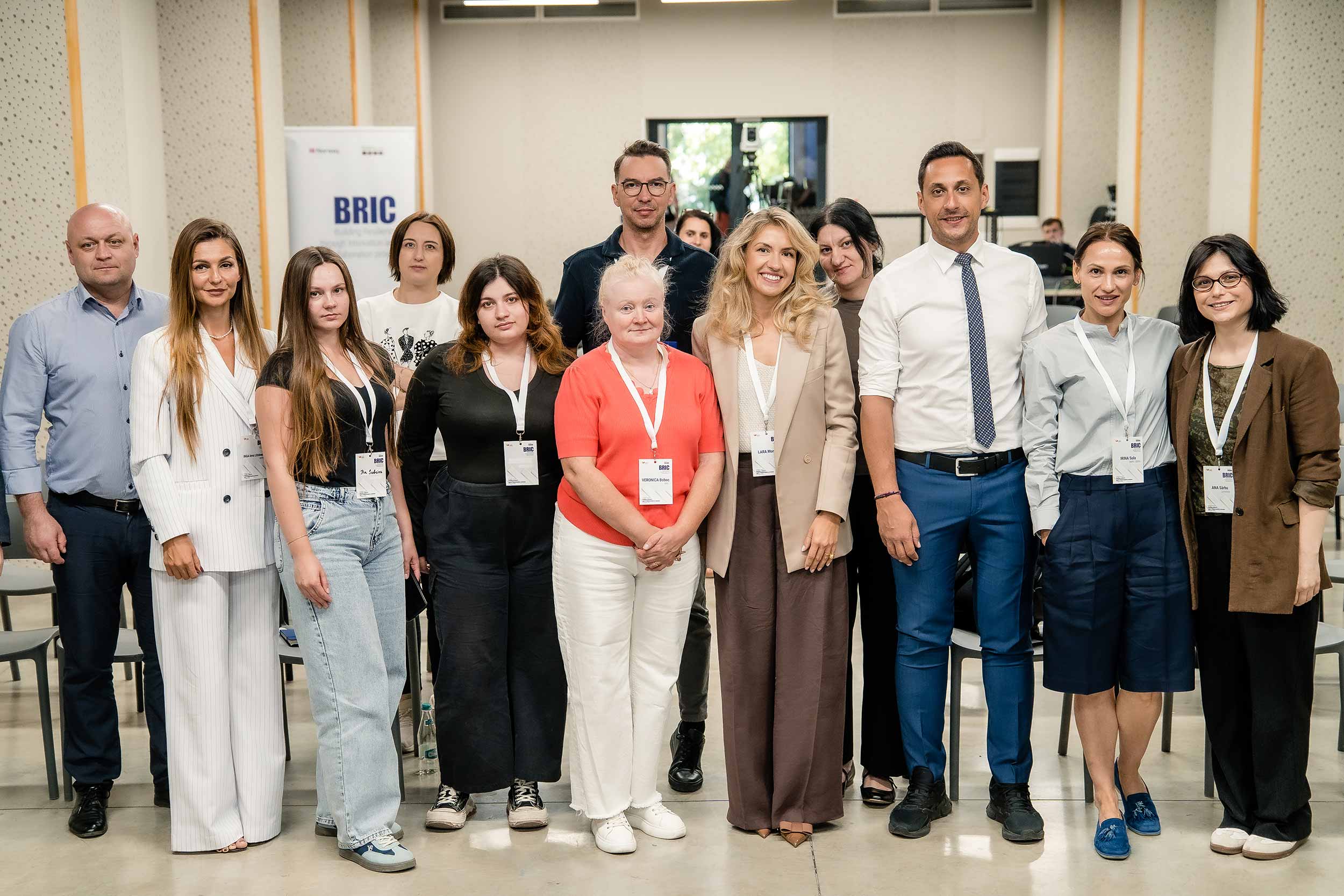Building Resilience: Romania’s Lessons for Moldova
Pro-European candidate faced coordinated propaganda and large-scale digital attacks ahead of critical polls.
Building Resilience: Romania’s Lessons for Moldova
Pro-European candidate faced coordinated propaganda and large-scale digital attacks ahead of critical polls.
As Moldova braces for crucial elections, the chief strategist of Romania’s 2025 presidential campaign that propelled pro-European candidate Nicușor Dan to victory warned of an intense information war ahead.
“Disinformation is an equally big problem in both countries. It is essential to show the truth and teach people how to distinguish between reality and lies,” said Vlad Gheorghe, a lawyer and former member of the European parliament.
Dan, the pro-European mayor of Bucharest, beat his far-right opposition candidate George Simion in May elections this year.
Romania is viewed as Moldova’s most consistent and committed EU partner advocating for Chisinau’s accession process, and the ruling Party of Action and Solidarity (PAS), endorsed Dan’s candidacy.
About 160,000 of Moldova’s citizens who have Romanian passports participated in the second round of the elections, and approximately 88 per cent of them voted for Dan.
Gheorghe described how the Romanian race was marked by coordinated propaganda, fake news and large-scale digital attacks.
He detailed tactics such as tens of thousands of fake TikTok accounts, fabricated polls designed to shift public perception, and doctored images targeting candidates’ reputations.
Even betting platforms, he noted, were manipulated to influence voter psychology.

These experiences carried urgent lessons for Moldova, Gheorghe continued, where similar patterns of information warfare were already visible. The onus was on civil society, the media and officials to co-ordinate a convincing response to efforts to manipulate the upcoming parliamentary elections.
“Credibility and consistency are the foundation of resilience when confronted with public hostility and disinformation,” he continued. “Once trust is damaged, regaining it is extremely difficult, which is why transparent communication and coherence of messages must be preserved even under pressure.”
Gheorghe was speaking in the Moldovan capital Chisinau at an August event on how best to address disinformation in an electoral context.
“The ability to spot the narrative trap in real time is a critical skill for Moldovan civil society, media actors and institutions preparing for upcoming elections, when coordinated disinformation campaigns are expected to intensify,” he told the audience.
“Reaction cannot come slowly when manipulative narratives begin to spread. A quick and well-structured counter-response, supported by factual evidence and amplified through reliable channels, is often the difference between escalation and containment.”
Some 60 participants from civil society, media, and international organisations gathered for a day of panel discussions and interactive workshops. One immersive simulation plunged attendees into a high-pressure election day scenario riddled with deepfakes, forged documents, bot campaigns and cyberattacks where participants played the roles of journalists, fact-checkers and campaign teams.
The event was organised within the Building Resilience through Innovation and Collaboration (BRIC) project, implemented by IWPR with funding from the Government of Norway.
This publication has been produced with financial support from Norway. Its contents are the sole responsibility of the Institute for War and Peace Reporting and can in no way be taken to reflect the views of the Government of Norway.

